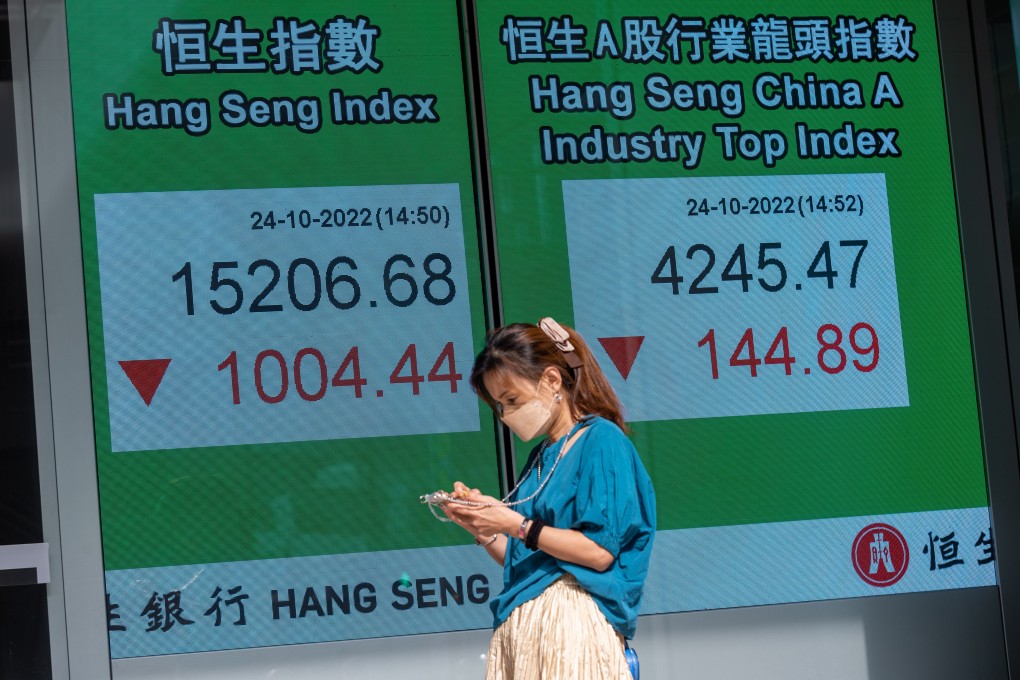Editorial | China economy needs a shot of confidence from new leadership
- Market sell-off following latest growth figures, major leadership reshuffle and impact of external negative factors have investors and businesspeople seeking policy direction

China’s patchy third-quarter growth figures have added to a volatile mix of market conditions, including a major reshuffle of China’s leadership and news of falling mainland exports to its largest markets.
Within hours on Monday, a market sell-off hit Hong Kong and the mainland, with the Hang Seng Index falling to a 13-year low.
The mixed third-quarter data itself did not justify market sentiment. At 3.9 per cent growth it may have come in well below the annual growth target of 5.5 per cent, but it still topped expectations and was much better than the second quarter’s 0.4 per cent.
Among major economies it was comparatively quite strong. Industrial production beat expectations, but retail sales – a measure of consumer confidence – missed them, signalling uneven growth.
Exports in dollar terms rose by 5.7 per cent, more than expected, but it has to be a worry in the current geopolitical situation that September’s exports to the United States fell by 11.6 per cent – against 3.8 per cent in August – to Britain by 11.8 per cent, France 7.6 per cent and Germany 5.6 per cent.
The market rout in Hong Kong and the mainland may have arisen from unmet expectations, such as that President Xi Jinping would announce a relaxation of the zero-Covid strategy, or the leadership reshuffle might signal further economic liberalisation.
